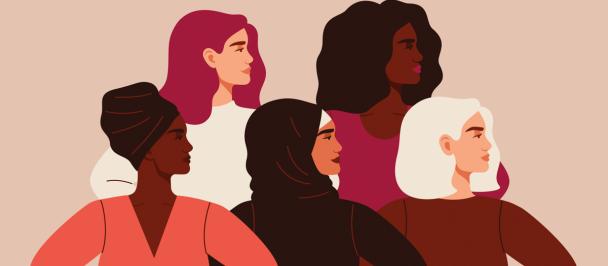In December 2017 Bloomberg made headlines when it published a report that suggested inclusive teams made better decisions up to 87 percent of the time. The report also noted that having more inclusive decision-making led to swifter decisions.
Recent newspaper articles have remarked that the governments that have apparently dealt well with the COVID- 19 pandemic, such as New Zealand, Germany and Taiwan, are those that have women in key positions. A wider analysis will be needed in due course to decide if the mere presence of women makes a difference, but a 2019 World Economic Forum report did note that having women in decision-making positions across different state level governments in Canada made a measurable difference to health.
All of this is important as the world’s governments claim to want to build back better after the immediate health and socio-economic impacts of the COVID-19 crisis have passed.
But none of this is new. It took many years of concerted action by women’s groups and lobbying by activists on the ground for the United Nations Security Council to acknowledge the key role women play in ensuring peace and security in the world by passing United Nations Security Council Resolution 1325 (UNSCR 1325) in October 2000. Since then, nine more resolutions on women peace and security have been passed. There has been research on the impact of women’s engagement in peace negotiations and there has been considerable effort by UN Women, the Women’s International League of Peace and Freedom (WILPF) and the International Civil society Action Network (ICAN) to bring women to the peace table.
However, there are still big gaps and regrettably many languishing conflicts. One key part of these resolutions that has not been well implemented is the call to ensure that women are engaged in economic and political decision-making in post-conflict situations. That doesn’t mean women are not taking key decisions in their communities, but it might mean that their voices are not being heard.
Women are often the glue that keep societies together in conflict and in times of displacement and return. Evidence from Northern Ireland, Colombia and the Philippines shows that supporting the efforts of women peace-builders at the local level can help build wider peace.
To try and encourage the voices of women to be heard, UNDP, working with UN Women, WILPF and ICAN, launched an online discussion last month to explore the role of women peace-builders in post-conflict economic and political decision making. Running until 30 June, the external consultation focuses on three themes, including women’s roles in the COVID-19 response. The results will be shared on the 20th anniversary of UNSCR 1325 later this year, and the best approaches from the consultations will be implemented into future UNDP projects. We encourage everyone to take advantage of this opportunity to share your perspectives and to join this discussion.

 Locations
Locations